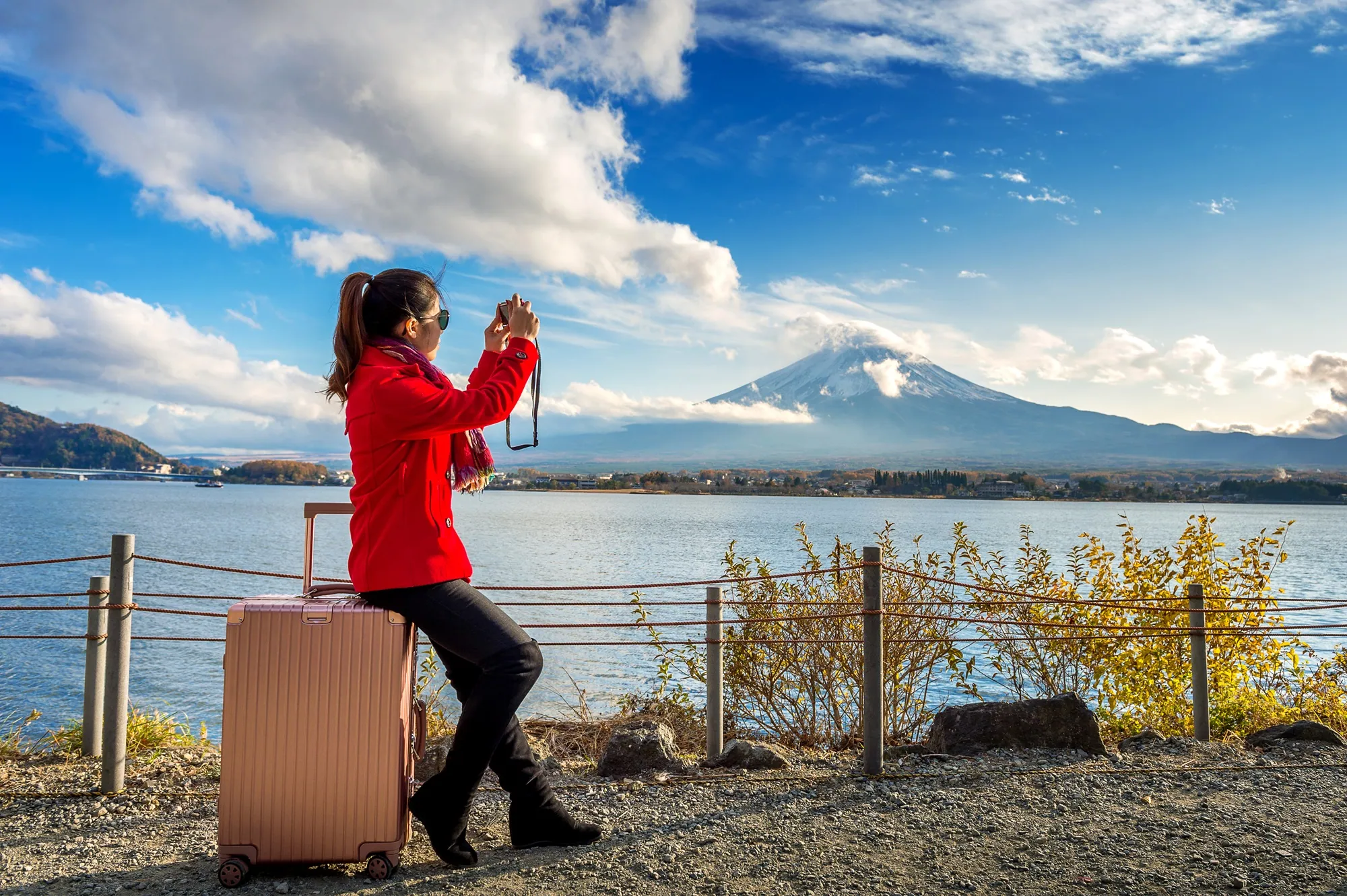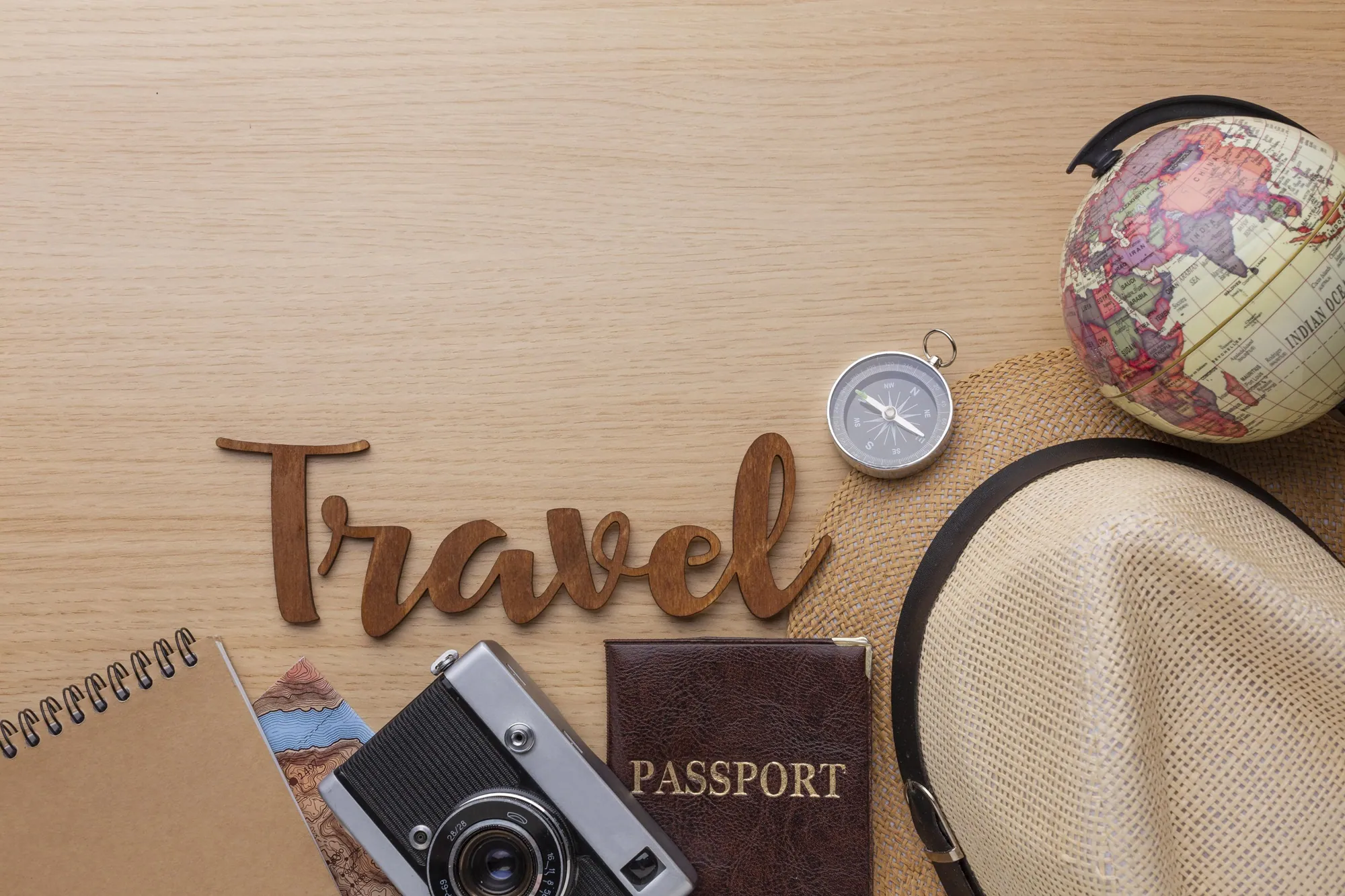Are you interested in Travel and Tourism? Then this is the perfect course for you. Learn how to manage Travel professionally!
500 Hours Duration
Completion Certificate
No Entry Requirements
Endorsed Courses
Get Your Course Now
Only 1 Day Left at this price
Discount 80% £860.00


Course Overview
Travel and Tourism Level 6
Discover the difference a Travel and Tourism Level 6 Diploma could make to your career prospects, with the help and support of CPD Courses. However ambitious your objectives may be, this exclusive Tourism Course (Distance Learning Level 6) could hold the key to the job of your dreams!
What could be better than being paid to travel the world, meet interesting people and enjoy new adventures every day? It may sound too good to be true, but that’s exactly what’s on offer in the travel and tourism sector. One of the largest and most diverse employers worldwide, the total global tourism sector is valued in excess of $7.6 trillion per year. New and established employers are constantly on the lookout for enthusiastic and outgoing individuals to add to their ranks. Irrespective of age, experience and employment history to date, you’ll find the perfect place to flourish in travel and tourism. Whether the dream is to work overseas as a holiday representative or build your own online travel agency from scratch, our exclusive tourism courses for distance learning have you and your career covered!
Delivered over a series of 15 engaging modules, this advanced Level 6 Travel and Tourism Course is open to newcomers and experienced personnel alike. Each of the 15 modules concludes with an online assessment, which your assigned tutor will mark and return with helpful feedback. Key topics covered include managing tour operations, the global tourism system, travel and tourism as a product, marketing and advertising in tourism, quality management, customer care, human resource management, public awareness programmes and many more besides. All study aids and learning resources are included in the initial fee, ensuring unbeatable value for money.
Enrol online in just a few clicks, or contact the team at CPD Courses anytime to learn more.
Who Should Take This Course
- Newcomers looking to break into the tourism sector
- Members of the workforce pursuing promotion
- Outgoing and enthusiastic candidates who love to travel
- Tourism business owners, managers, team leaders etc.
- Anyone interested in starting their own tourism business
- Jobseekers working on their employment prospects
Course Syllabus
This endorsed Level 6 Executive Diploma in Travel and Tourism takes place over a series of 15 modules, as outlined in brief below:
Module 1 - Introduction to Travel & Tourism
A detailed introduction to the contemporary travel and tourism industry is provided in the first module, which also discusses the differences between the various types of tourism. The benefits and drawbacks of package holidays are also examined, along with the changing nature of the travel and tourism sector and the growing popularity of self-packaged holidays.
Module 2 - Tourism Products & Services
Candidates then consider how tourism services are packaged and sold as products, analysing the most essential elements of tourism products and how to assess a target audience’s requirements. An overview of the marketing mix from a travel and tourism perspective is also provided, along with the concept of the product lifecycle and each of its phases.
Module 3 – The Travel & Tourism System
The functions, objectives and importance of the worldwide travel and tourism system are then discussed, introducing candidates to the various service providers that operate within the sector. Examples of which include retailers, transportation companies, tour product organisers, travel agents, accommodation providers, tour operators and more.
Module 4 – Managing Tour Operations
A closer look at the management of tour operations follows in the fourth module, in which learners consider the benefits of organising international travel via established travel agents. The characteristics of reliable and reputable travel agents are also discussed, along with the process of making transportation bookings.
Module 5 - Marketing in Travel and Tourism
Marketing as a key performance driver in travel and tourism is then discussed, in which candidates learn how to develop and implement a high-impact marketing strategy. An overview of typical marketing and promotional activities is provided, along with the importance of measuring the effectiveness of a marketing campaign and more.
Module 6 - Communication Skills
Candidates then learn how communication is the linchpin at the core of every successful product and service in the travel and tourism trade. The importance of active listening skills is discussed, along with how to make a positive and lasting first impression, effective use of demonstration cues and how to interpret nonverbal communication.
Module 7 - Techniques for Maximum Sales
In the seventh module, learners are introduced to a series of helpful techniques and strategies for improving the size and value of every sale. The benefits of ‘smart’ selling are also discussed, along with productivity techniques for maximum sales and helpful tips for closing as many sales as possible.
Module 8 - Quality Management and Customer Care
The benefits and importance of proactive quality control in travel and tourism are then assessed, along with how superior customer service can be the ultimate selling point. Learners discover how the guest experience is influenced by a variety of factors, each of which must be controlled and optimised to drive customer satisfaction and loyalty.
Module 9 - Human Resource Management
Several essential human resource management topics are then touched upon, providing candidates with a detailed breakdown of the human resource development strategy. The benefits and importance of strategic HR management in travel and tourism are discussed, along with the influence of rewards, benefits and compensation on workforce performance.
Module 10 - Time Management
The principles of effective time management are explored in Module 10, incorporating helpful strategies and techniques for making better use of all available time. Tips for eradicating procrastination at work and elsewhere are also provided, along with the benefits of scheduling and how to establish objectives using the ‘SPIRIT’ model.
Module 11 - Stress Management
The inevitability of stress in a high-pressure travel and tourism post is then discussed, in which candidates learn how to take proactive control over their own stress, anger and anxiety. The potential consequences attributed to excessive stress are also discussed, along with how stress cannot always be avoided and must therefore be managed.
Module 12 - Transport Management
A series of key transport management concepts are then discussed, with strong focus on the potential benefits and drawbacks of several different transportation types. Candidates consider the environmental implications of popular methods of transport, along with the various challenges affecting transport management in the travel and tourism sector.
Module 13 - Crisis Management
Common crises encountered in travel and tourism careers are analysed and assessed in Module 13, which highlights the importance of creating a viable crisis management plan. Damage limitation in times of crisis is also discussed, alongside techniques and strategies for restoring traveller confidence in the wake of a crisis situation.
Module 14 - Managing Public Awareness Programmes
The process of generating interest in specific travel and tourism destinations is broken down and discussed in Module 14. Candidates learn how public awareness programs can be used to enhance the appeal of any destination as a tourism product, while considering the importance of local community involvement and good press relations.
Module 15 - Sustainable Tourism & Development
Concluding the course, Module 15 considers the extent to which sustainability and environmental concerns will play a major role in all future travel and tourism activities. The wide-reaching benefits of sustainable tourism are discussed, alongside the roles and responsibilities of travel and tourism service providers in ensuring their products are sustainable.
Career Path
A career in travel and tourism really can feel like a life-long holiday you get paid to enjoy. If you’re an enthusiastic, outgoing and confident individual with a passion for people, you’re already halfway there! With no prior knowledge or experience required, this advanced Level 6 Travel and Tourism Course could pave the way for the job of your dreams. Work towards a position as a Tour Guide, Holiday Representative, Sales Representative or Marketing Specialist, or perhaps take the first steps towards setting up your own online travel agency. All with entry level salaries starting from around £20,000 plus countless perks and privileges.
Endorsement
At the end of this course successful learners will receive a Certificate of Achievement from the Quality Licence Scheme and a Learner Unit Summary (which lists the components the learner has completed as part of the course).
This course and/or training programme has been endorsed by the Quality Licence Scheme for its high-quality, non-regulated provision and training programmes. This course and/or training programme is not regulated by Ofqual and is not an accredited qualification. Your training provider will be able to advise you on any further recognition, for example progression routes into further and/or higher education. For further information please visit the Learner FAQs on the Quality Licence Scheme website.
FAQs
How can I write effectively about travel?
To write effectively about travel, focus on vivid descriptions, cultural insights, and personal experiences that capture the essence of a place. Use sensory language and storytelling to engage your readers.
Are employers impressed by willingness to travel?
Yes, many employers value candidates who are open to travel, especially in fields like tourism, international business, and hospitality, where flexibility and adaptability are essential.
What is a travel diary and how is it useful?
A travel diary is a personal record of travel experiences, places visited, and emotions felt during a journey. It helps in reflecting on travels and can be a valuable resource for content creation or travel blogging.
What is the difference between travel and tourism?
Travel refers to the act of moving from one place to another, while tourism involves traveling for leisure, business, or cultural exploration, often including planned services like accommodation and tours.
What does travel history mean in tourism?
Travel history refers to the record of an individual’s past travels, which can help tailor future travel experiences and assist in visa applications, loyalty programs, and personalized travel services.
What career options are available after completing this diploma?
Graduates can pursue careers as travel consultants, tour operators, destination marketers, hotel managers, or customer service executives in the tourism sector.
Does the course cover sustainable tourism practices?
Yes, Module 15 is dedicated to sustainable tourism and development, highlighting environmentally responsible practices and their importance in the future of the industry.
Is this course suitable for someone with no prior travel industry experience?
Absolutely. This diploma is designed for beginners and professionals alike, offering foundational to advanced knowledge across all aspects of travel and tourism.
Will I learn about crisis management in travel operations?
Yes, Module 13 focuses on crisis management, teaching strategies to handle emergencies, restore traveler confidence, and minimize reputational damage.
How does the course help with marketing skills in tourism?
Marketing in travel and tourism is thoroughly covered in Module 5, including strategy development, campaign evaluation, and customer targeting for tourism services.


Your Certificate, Delivered Instantly & Professionally
Finish your course and instantly download your PDF certificate to share or showcase. Prefer a hard copy? We’ll send you a beautifully printed version, ready to frame and display with pride!
Recognised CPD Certification
Earn a fully accredited CPD certificate that’s respected across industries.
Instant Download & Print
Download your certificate immediately after completing your course – perfect for your records or CV.
Printed Copy Included
You’ll also receive a professionally printed certificate delivered straight to your door – ideal for framing and display.

Verifiable Unique ID
Each certificate includes a unique ID number, easily verifiable by employers.
High-Quality Print
Enjoy a professionally printed certificate that looks impressive and feels premium.
Completion dates included
Your certificate clearly displays the completion date, making renewal planning simple.
What our Students say
Celebrating our Clients and Partners





























